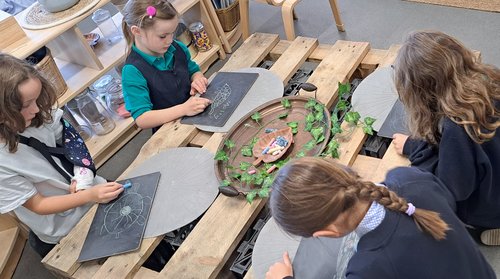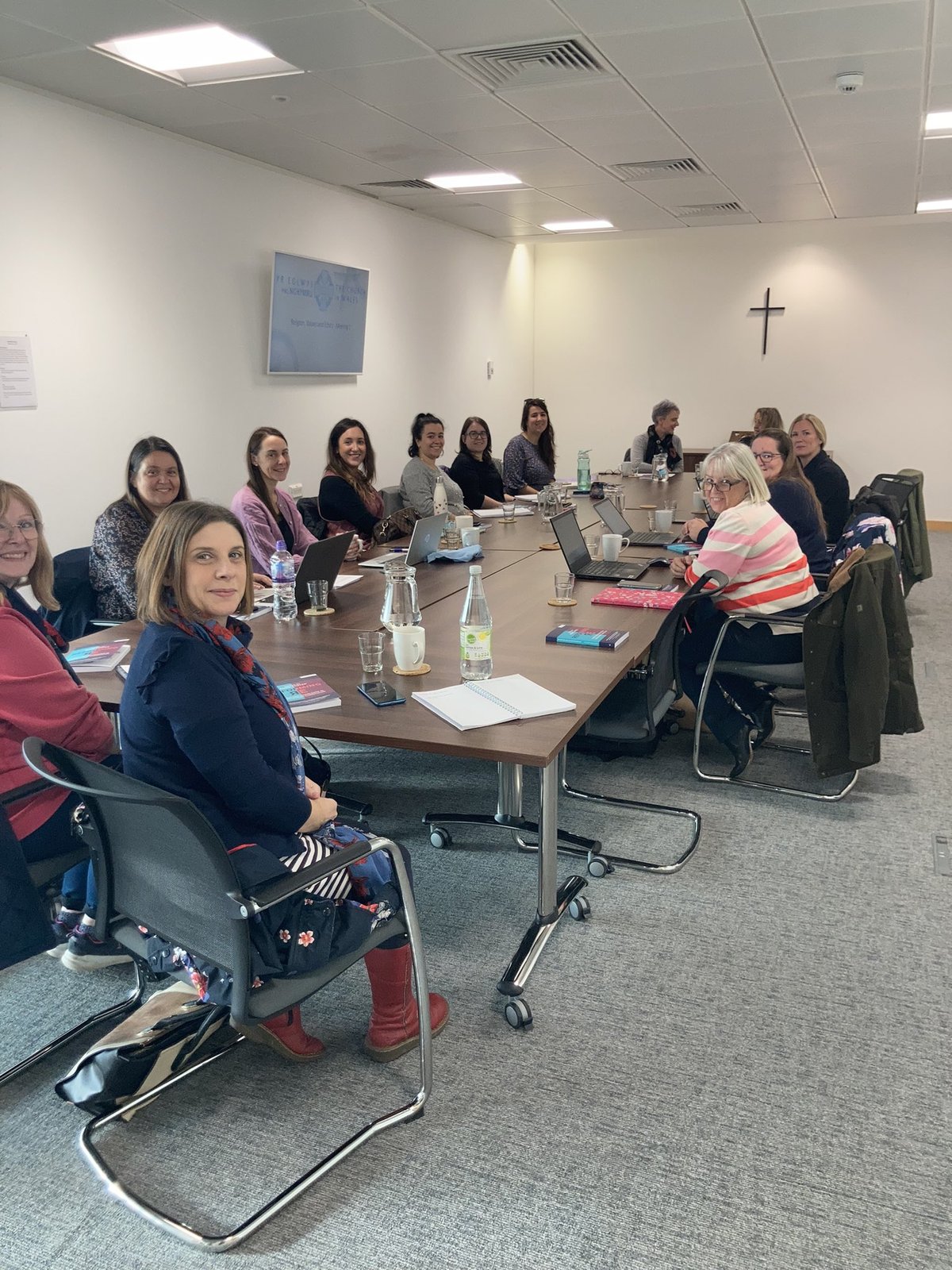Research and Information
Background

Following the introduction of Curriculum for Wales and updated guidance for Religion, Values and Ethics (RVE), Church in Wales Education teams recognised a need to provide additional support for teachers. The requirement for RVE to be objective, critical and pluralistic was one perceived challenge of the curriculum.
Working in partnership with Culham St Gabriel's and advisers based across Wales, funding was obtained to set up a network of teachers. This network included primary and secondary schools, Church in Wales and Local Authority maintained schools and RVE advisers from Central South Consortium (CSC) and the Education Achievement Service (EAS).
The network considered what was meant by ‘objective, critical and pluralistic’ Religion, Values and Ethics (RVE). The focus for each member of the network was to explore the teaching of objective, critical and pluralistic RVE in their chosen learning environment.
The group met four times over eighteen months to discuss their projects and to hear from expert speakers. We are grateful to Father Dean Atkins, St Mary the Virgin Butetown, Mark Bryant, Centre for the Study of Islam in the UK, Cardiff University and Kathy Riddick, Wales Humanists for sharing their experience and wisdom.
Each school focused on an area of their choice to ensure firstly that context remained central and secondly that there would be a broad range of approaches in the case studies. Teachers were then asked to address the following questions;
- Why did you choose this focus?
- What changes did you make?
- What was the impact of the changes?
- What influenced you?
Schools were also asked to list their top three takeaways.
Case Studies
Westwood Community Primary School
Introducing Non Religious Philosophical Convictions in to the Primary Classroom.
Read moreLlanfechain Church in Wales Primary School
Exploring diversity of beliefs including non-religious philosophical convictions.
Read moreSt John the Baptist Church in Wales Primary School
Weaving Religion, Values and Ethics into a thematic approach.
Read moreCharles Williams Church in Wales Primary School
Curriculum Mapping of Religion, Values and Ethics.
Read moreMaindee Primary School
Identity and belonging - What makes us who we are as people, communities and citizens living in a diverse world?
Read moreConclusion
After discussions with the network and reflecting on the project, key insights have emerged.
It is clear from the research that learners want to engage in discussions and explore the key themes and learning journeys central to RVE.
All those who developed case studies felt more confident in developing an objective, critical and pluralistic approach as a result of having discussed the issues with colleagues and been part of the network.
Teachers emphasised the necessity of providing a "safe space" to facilitate effective RVE teaching, although further exploration is needed to determine what this means in practice as well as guidance to provide staff with the confidence to unpick difficult concepts and respond to ideas that learners may have.
All schools referenced the importance of “lived experience” and the impact on learners of hearing directly from people of faith/non-religious philosophical convictions.
Feedback from teachers highlights a lack of confidence in delivering RVE, recognition of the existing support provided by local authority and consortia advisers and a request for further Curriculum for Wales focused professional learning.
It is acknowledged among all group members, including advisers, that fostering environments where educators feel comfortable posing questions and openly discussing concerns is paramount for the development RVE at both local and national levels in Wales.
The apprehension of inadvertently causing offense or delivering RVE ineffectively remains a prevalent issue. As a group, however we were reassured by the opportunities to engage with experts and advisers across Wales, who not only had an excellent understanding of RVE but also understood the key aims of the Curriculum for Wales.
Opinions vary regarding the best way to integrate RVE into the curriculum, with a blended approach favoured, however this was often dependent on lesson content.
Moving forward, several key points for consideration have been identified:
- How can we assist non-specialist teachers in designing bespoke curricula, teaching effectively, and fostering innovation?
- How do we ensure alignment between the pedagogy of the Curriculum for Wales and concept-based methodologies whilst still prioritising adequate curriculum time for RVE?
- How do we define the attributes of a secure and supportive environment within the context of an RVE lesson?
- How do we engage with faith communities at a local level to ensure that Cynefin remains a key focus for RVE?
- How can we further develop enquiry-based approaches to RVE?
- How do we develop the exploration of the key theme of "identity" through RVE?
Acknowledgements
We would like to thank all teachers, headteachers, staff and schools who took part in this network:
- Rachel Kendall, Charles Williams Church in Wales Primary School, Monmouth Diocese
- Holly Kent, Alderman Davies Church in Wales Primary School, Llandaff Diocese
- Beth Roberts, Llanfechain Church in Wales Primary School, St Asaph Diocese
- Amira Mattar, Westwood Community School
- Emily Tiryaki, St John the Baptist Church in Wales Primary School, St Asaph Diocese
- Wendy MacGarvie, St Aiden's Church in Wales Primary School, St David's Diocese
- Sarah Groves, Clyro Church in Wales Primary School, Swansea and Brecon Diocese
- Geraldine Waite, Maindee Primary School, EAS
- Nia Jones, Y Pant Secondary School, CSC
- Lynne Davies, Williamstown Primary School, CSC
- Mark Bryant - Cardiff University
- Father Dean Atkins - St Mary the Virgin Church, Butetown
- Kathy Riddick - Wales Humanists
We were also grateful to Donna Graves and Hayley Jones, advisers from Central South Consortia (CSC) and Educational Achievement Service (EAS) for supporting our network

This network was funded by the Church in Wales, EAS, CSC and through a grant from the Culham St Gabriel's Trust. Please visit their website for more information about how they support teachers and the development of Religious Education.